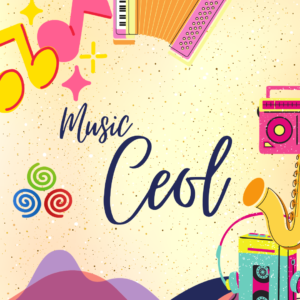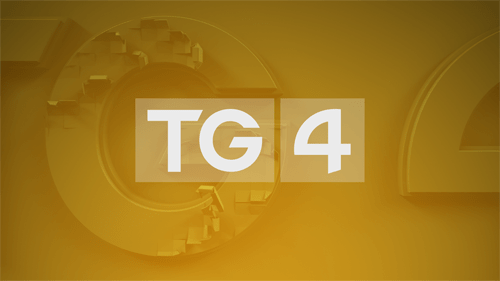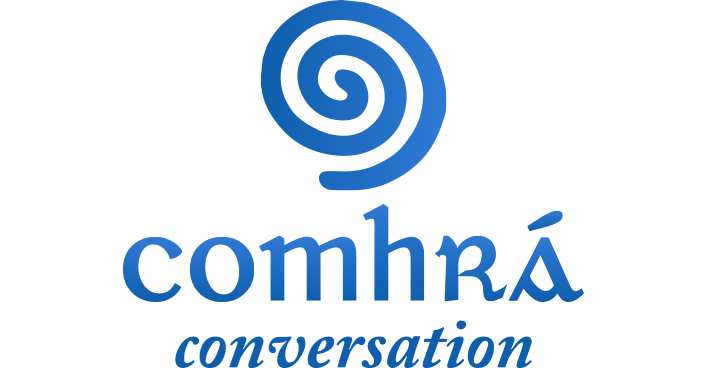10 Ways To Improve Your Irish Listening Skills
 Aon scéal, a chara?! No matter how many times you practise saying a sentence out loud or in your head, any conversation will come to an abrupt end if you can’t understand the response. Have you ever been in a situation where you prepared a perfect Irish sentence and said it with confidence, only for the person you’re addressing to respond with a long, complex sentence that you simply cannot understand? If this is the case, then you might need some more Irish listening practise.
Aon scéal, a chara?! No matter how many times you practise saying a sentence out loud or in your head, any conversation will come to an abrupt end if you can’t understand the response. Have you ever been in a situation where you prepared a perfect Irish sentence and said it with confidence, only for the person you’re addressing to respond with a long, complex sentence that you simply cannot understand? If this is the case, then you might need some more Irish listening practise.
Understanding spoken Irish is without a doubt one of the hardest parts of learning the language. At times, some native speakers speak so quickly they barely pause for breath! Words often blend together, making it hard to know when one word stops and another word begins. With this in mind, we’ve studied the educational research and surveyed our own students in the online Irish community for tips. See below for the results: 10 Ways To Improve Your Irish Listening Skills!
1. Music
 Do you like to listen to music on your commute to work? What about while doing chores at home? Or working out in the gym? If so, you need to switch up your playlist and start listening to some Irish tunes. While this isn’t a surefire way to understand the spoken language, it’s a good way to introduce your brain to the rhythm of the language and new vocabulary. This technique isn’t recommended for those who don’t already listen to music on a daily basis, as there are other, more active ways to practise your listening skills. However, if you’re a music-lover who already listens to music regularly, then this is the perfect way to get in a little extra practise. You can easily find Irish language singers to suit your taste, from established acts like Clannad, Altan and Liam Ó Maonlaí to newer performers like Kneecap, Róisín Seoighe, Seo Linn, Colm Mac Con Iomaire and The Bonnymen. If you don’t know where to start looking for new artists, search for a pre-made playlist of Irish songs on YouTube or Spotify.
Do you like to listen to music on your commute to work? What about while doing chores at home? Or working out in the gym? If so, you need to switch up your playlist and start listening to some Irish tunes. While this isn’t a surefire way to understand the spoken language, it’s a good way to introduce your brain to the rhythm of the language and new vocabulary. This technique isn’t recommended for those who don’t already listen to music on a daily basis, as there are other, more active ways to practise your listening skills. However, if you’re a music-lover who already listens to music regularly, then this is the perfect way to get in a little extra practise. You can easily find Irish language singers to suit your taste, from established acts like Clannad, Altan and Liam Ó Maonlaí to newer performers like Kneecap, Róisín Seoighe, Seo Linn, Colm Mac Con Iomaire and The Bonnymen. If you don’t know where to start looking for new artists, search for a pre-made playlist of Irish songs on YouTube or Spotify.
2. Podcasts and Radio
The most obvious way to get your ears used to hearing the Irish language is to listen to people speaking, such as weekly Comhrá sessions. But what do you do if you miss a session?  Irish radio shows and podcasts are a superb way to hear native speakers talk about a range of different subjects. While doing this may be difficult at first, after a short amount of time you will notice that you start picking up on certain words or phrases. Radio programmes have the advantage of combining conversation among the presenters with music, which may be less intense for early-stage language learners. On the other hand, podcasts are based on specific subjects, which gives you the opportunity to listen to the hosts discussing a topic that you find personally interesting. Podcasts cover every topic imaginable, from politics to sports, technology to economics. You’ll easily find an Irish podcast that appeals to you. Check out our article, The Top 12 Irish Podcasts. You’ll find many podcasts via Irish radio stations, such as Raidió na Gaeltachta, Raidió na Life and Raidió Fáilte. Some of our favourites include Beo Ar Éigean (top banter and ‘scoth na Gaeilge’ with Siún, Áine and Sinéad) and What the Focal?! (Ciara Ní É interviews guests from the Irish language world).
Irish radio shows and podcasts are a superb way to hear native speakers talk about a range of different subjects. While doing this may be difficult at first, after a short amount of time you will notice that you start picking up on certain words or phrases. Radio programmes have the advantage of combining conversation among the presenters with music, which may be less intense for early-stage language learners. On the other hand, podcasts are based on specific subjects, which gives you the opportunity to listen to the hosts discussing a topic that you find personally interesting. Podcasts cover every topic imaginable, from politics to sports, technology to economics. You’ll easily find an Irish podcast that appeals to you. Check out our article, The Top 12 Irish Podcasts. You’ll find many podcasts via Irish radio stations, such as Raidió na Gaeltachta, Raidió na Life and Raidió Fáilte. Some of our favourites include Beo Ar Éigean (top banter and ‘scoth na Gaeilge’ with Siún, Áine and Sinéad) and What the Focal?! (Ciara Ní É interviews guests from the Irish language world).
3. No Subtitles
 One of the most successful TV shows of 2021 and 2024 was Squid Game, which wouldn’t have become a worldwide phenomenon without the help of subtitles. However, even after watching all two seasons, did any of us learn any Korean? When we follow subtitles, our brains get lazy, and we don’t actually listen to the language being spoken! This means that language learners should stop using English subtitles altogether. Watching Ros na Rún without English subtitles is a good place to start. There is a diverse collection of programmes available for streaming on TG4, catering for a wide range of interests. When available, opt for Irish subtitles, so your brain can start to associate sounds with words that you may already recognise written down.
One of the most successful TV shows of 2021 and 2024 was Squid Game, which wouldn’t have become a worldwide phenomenon without the help of subtitles. However, even after watching all two seasons, did any of us learn any Korean? When we follow subtitles, our brains get lazy, and we don’t actually listen to the language being spoken! This means that language learners should stop using English subtitles altogether. Watching Ros na Rún without English subtitles is a good place to start. There is a diverse collection of programmes available for streaming on TG4, catering for a wide range of interests. When available, opt for Irish subtitles, so your brain can start to associate sounds with words that you may already recognise written down.
4. Apps
Virtually everybody has a smartphone now and most of us are inseparable from them. Instead of wasting time scrolling through social media, put your time to good use by using language learning apps for some Irish listening practise! Apps are a great way to start off learning a language while having fun, and most language students have already heard of Duolingo. Maybe it’s the first app you used when starting out learning Irish. Duolingo uses games to help you learn different vocabulary and grammar. Similar apps include Pimsleur, Rosetta Stone, Caoga Caoga and Mango. We’ve found that many of our community members start off accessing Irish through Duolingo, although in most cases, they end up seeking to meet fellow learners for actual language practise. Language interaction and application is where our online community excels. For a list of Irish learning resources, including apps, see LetsLearnIrish.com/links
5. Take Notes
 If you’re more of a visual learner, listening practise may be hard for you. There’s no point spending your precious time listening to Irish if you’re not going to remember any of it! That’s why it’s a good idea to take notes, and the more concise the notes are, the better. You might want to note down words you like, unfamiliar words that were repeated several times, or any other things that stand out to you. Take a few minutes after every listening session to read through your notes, giving you more chance to retain the vocabulary and enabling you to research and answer any questions you may have jotted down. Do this after listening to a podcast, conversation or recorded class. Many of our members like to use Anki as a learning tool – read about it here!
If you’re more of a visual learner, listening practise may be hard for you. There’s no point spending your precious time listening to Irish if you’re not going to remember any of it! That’s why it’s a good idea to take notes, and the more concise the notes are, the better. You might want to note down words you like, unfamiliar words that were repeated several times, or any other things that stand out to you. Take a few minutes after every listening session to read through your notes, giving you more chance to retain the vocabulary and enabling you to research and answer any questions you may have jotted down. Do this after listening to a podcast, conversation or recorded class. Many of our members like to use Anki as a learning tool – read about it here!
6. Consistency is Key
 You won’t be able to understand a whole language overnight, but you will gradually understand more and more if you are consistent with your listening practise. Whether you choose to listen to music or podcasts or join an online comhrá session, what matters is that you do so regularly. You can even combine several learning methods for the best chance of making fast progress. See our online community for ways to engage with the language on a daily and weekly basis. Our weekly ‘Topaic na Seachtaine’ allows our members to focus on a specific topic at Comhrá sessions.
You won’t be able to understand a whole language overnight, but you will gradually understand more and more if you are consistent with your listening practise. Whether you choose to listen to music or podcasts or join an online comhrá session, what matters is that you do so regularly. You can even combine several learning methods for the best chance of making fast progress. See our online community for ways to engage with the language on a daily and weekly basis. Our weekly ‘Topaic na Seachtaine’ allows our members to focus on a specific topic at Comhrá sessions.
7. Focus on your Interests
There’s no point listening to a podcast about forestry if you have no interest in the environment, or listening to an audiobook about true crime if you’re a fan of romance novels! In order for your Irish listening abilities to improve, it’s vital that you choose subjects that are of interest to you. Focus on your hobbies or passions, or things that you might find useful in your everyday life. This way, the audio material will spark an interest, and you are more likely to try to understand and to be keen to continue your efforts, rather than getting bored and giving up.
 If you don’t know any Irish-speakers to practise with, then putting the language into practise can certainly be a challenge! After all, a living language needs to be spoken. To get around this, you might like to attend a language class, perhaps hire a tutor or even better, join a regular Comhrá session! Doing this will help you to immerse yourself in the language and your ears will thank you for it! Regular conversation in Irish not only allows you to practise your listening skills, but you can also ask others to correct your pronunciation. For comhrá opportunities, see LetsLearnIrish.com/comhra
If you don’t know any Irish-speakers to practise with, then putting the language into practise can certainly be a challenge! After all, a living language needs to be spoken. To get around this, you might like to attend a language class, perhaps hire a tutor or even better, join a regular Comhrá session! Doing this will help you to immerse yourself in the language and your ears will thank you for it! Regular conversation in Irish not only allows you to practise your listening skills, but you can also ask others to correct your pronunciation. For comhrá opportunities, see LetsLearnIrish.com/comhra
9. Audiobooks
 Despite audiobooks being around for decades, they have become increasingly popular over recent years. If you’re a book-lover, this could be the perfect way to hone your Irish listening skills. Download an Irish book to get in a few extra minutes, or hours, of Irish listening practise every day. If that sounds difficult, choose a book that you already know and love, but listen to it in Irish instead. This way, you’re familiar with the storyline and can follow along more easily, but you can also pick up some new vocabulary!
Despite audiobooks being around for decades, they have become increasingly popular over recent years. If you’re a book-lover, this could be the perfect way to hone your Irish listening skills. Download an Irish book to get in a few extra minutes, or hours, of Irish listening practise every day. If that sounds difficult, choose a book that you already know and love, but listen to it in Irish instead. This way, you’re familiar with the storyline and can follow along more easily, but you can also pick up some new vocabulary!
There are many audiobook resources to be found online. Check out the following:
Cois Life – Closleabhair / Audiobooks
Cló Iar-Chonnacht – Closleabhair / Audiobooks
An Gúm – Closleabhair / Audiobooks
Walker Éireann – Children’s books read aloud
In real life, you can usually ask somebody to repeat themselves, so don’t be too strict when practising at home. Replay sounds such as song choruses, or snippets from a video or podcast, until you can pick up on a few more words. Replaying certain words or phrases may not be possible with live TV episodes, radio shows, speeches or performances, but in most other cases you are able to pause and rewind, or simply say to your speaking partner “Abair sin arís, le do thoil”. When listening to songs, find the song lyrics beforehand (e.g. SongsinIrish.com), or for news transcripts, check out Vifax. In the case of our weekly classes, all students can play back the video recordings, or download the audio version of the class, which is incredibly helpful when going over each week’s new content.
Bhuel, cad a cheapann tú anois? Hopefully you’ll find the listed resources to be a helpful guide as you continue on your Irish language journey. Use the many radio stations, podcasts, apps and audiobooks to support your learning, and then go and use the language! Find a comhrá session or Irish language class, and complement the strategies you’ve been using to improve your listening skills. Also, you might like to look at our 12 Best Free Resources for Learning Irish…agus bígí ag éisteacht!
Dúshlán na Seachtaine - Your Challenge!
Test your skills by playing one of your favourite Irish language music songs. What can you understand?
Post a comment in Irish on our Facebook page or message us on Instagram!
Bígí páirteach!
Join the online Irish community at LetsLearnIrish.com.
Follow on social media @LetsLearnIrish.





